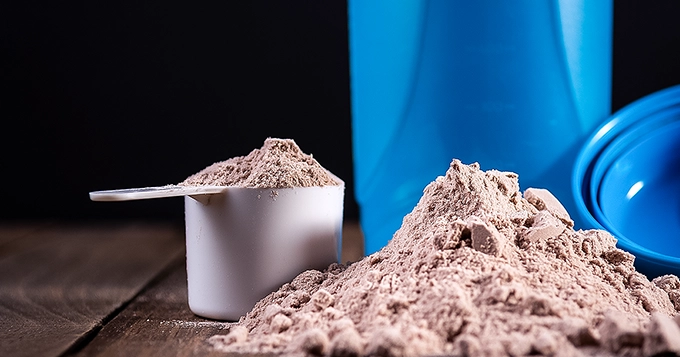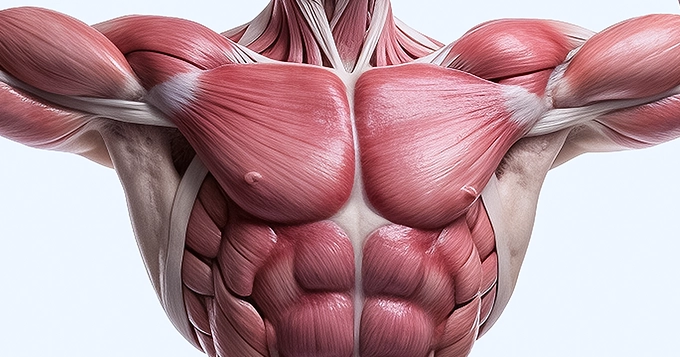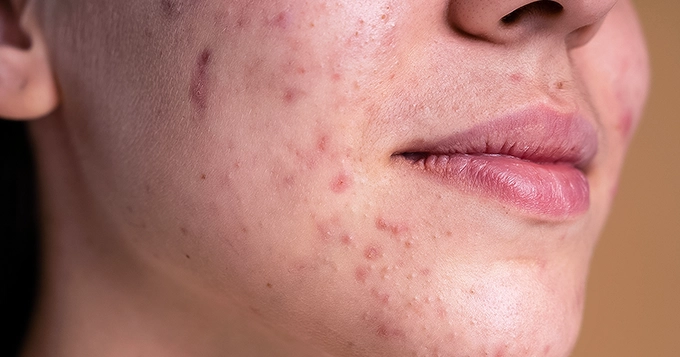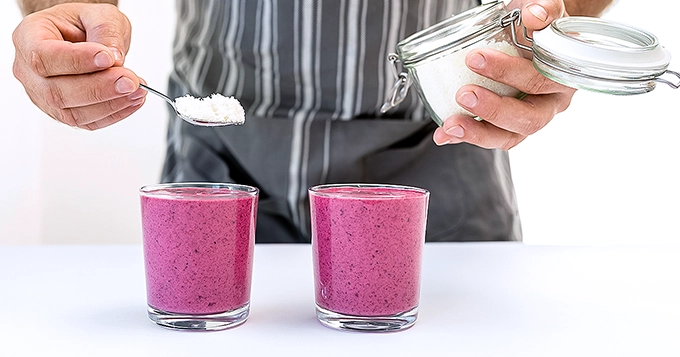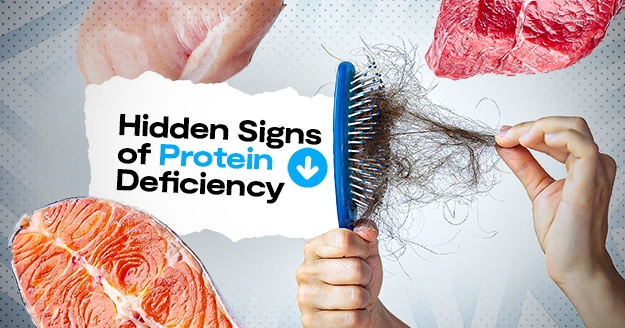What is Protein?
Proteins are large, complex molecules that have significant functions within the body. They play essential roles in cellular activities, contributing significantly to the structural integrity, functioning, and regulation of tissues and organs.
20 amino acids are found in protein, nine of which are referred to as essential. According to the U.S. National Library of Medicine, essential amino acids must come from food because your body is unable to produce them on its own. Non-essential can be obtained from the diet or naturally created by our bodies.
What is Protein Deficiency?
Protein deficiency occurs when there is an insufficient intake of protein in the diet, leading to a shortage of essential amino acids needed for your body to function normally. This deficiency can result in various health issues, affecting the structure and function of tissues, organs, and overall physiological processes.
Protein Deficiency Symptoms
You won’t immediately see early signs that your protein intake is low. However, if it stays low for an extended period of time, you will see signs of deficiencies, which could have detrimental implications on your health.
What is the result of a dietary protein deficiency? Let’s find out.
-
Loss of Muscle Mass
Loss of muscle mass is a common consequence of protein deficiency.
Proteins are vital for muscle repair, maintenance, and growth. When your body lacks an adequate supply of protein, it may break down muscle tissue to obtain the necessary amino acids for vital functions. This can lead to muscle wasting, weakness, and a decline in overall muscle mass. Loss of muscle mass is often accompanied by symptoms such as fatigue, decreased strength, and compromised physical performance.
-
Bone fractures
Proteins play a critical role in bone health by contributing to the formation, maintenance, and repair of bone tissue.
Collagen, protein molecules made up of amino acids, provides the framework for bone strength and flexibility.
When the body lacks sufficient protein, the synthesis of collagen and other proteins essential for bone structure may be compromised. This can weaken bones, which makes them more susceptible to fractures, especially under stress or impact.
Proteins are also involved in the regulation of minerals like phosphorus and calcium, which are vital for bone mineralization and strength.
-
Skin problems
Protein deficiency can contribute to various skin problems due to the crucial role that proteins play in maintaining skin health. Proteins are involved in the formation of collagen and elastin, which are essential components of skin structure. Signs of a protein deficiency include the following skin issues:
- Dryness: Insufficient protein can lead to decreased moisture retention in the skin, resulting in dry and flaky skin.
- Poor Wound Healing: Proteins are essential for the repair and regeneration of tissues, including the skin. Protein deficiency may impede the healing process of wounds and skin injuries.
- Skin Disorders: In severe cases, protein deficiency can contribute to the development of skin disorders, as proteins play a role in maintaining the skin’s protective barrier.
-
Edema
Protein deficiency can lead to edema. It is the abnormal accumulation of fluid in the body’s tissues, causing swelling.
Proteins, particularly albumin, play a crucial role in regulating fluid balance by helping to maintain the osmotic pressure in the blood vessels. When there is an insufficient amount of protein in the bloodstream, the balance between fluids in the blood vessels and surrounding tissues is disrupted, resulting in fluid leakage into the tissues.
Edema related to protein deficiency typically manifests as swelling in the extremities, such as the feet, ankles, and hands. Other potential signs of edema due to protein deficiency may include puffiness in the face and abdominal bloating.
It’s important to note that protein deficiency-induced edema is more commonly associated with severe malnutrition or specific medical conditions affecting protein metabolism.
-
Brittle hair and nail
Proteins, particularly keratin, are fundamental building blocks for the structure and strength of hair and nails. Being deficient in protein can impact the health and integrity of these structures, leading to:
- Brittle Hair: Hair strands are primarily composed of a protein called keratin. Insufficient protein can result in weakened hair structure, making it more prone to breakage, split ends, and an overall brittle texture.
- Brittle Nails: Nails are also made up of proteins, including keratin. Protein deficiency can lead to soft and brittle nails that are more susceptible to splitting, cracking, and breaking.
-
Increased Severity of Infections
Proteins play a crucial role in immune function by contributing to the production of antibodies, enzymes, and various immune system cells. Thus, protein deficiency can compromise the immune system, leading to an increased severity of infections and a higher susceptibility to illness.
Key ways in which protein deficiency can impact immune function include:
- Antibody Production: Antibodies play a central role in recognizing and neutralizing pathogens (such as viruses and bacteria). Inadequate protein levels can hinder the production of antibodies, impairing the body’s ability to combat infections effectively.
- Immune Cell Function: Various immune cells, including T cells, B cells, and phagocytes, rely on proteins for their development and proper functioning. Protein deficiency may compromise the activity of these cells, impairing the immune response.
- Inflammatory Response: Proteins are involved in regulating the inflammatory response, a crucial component of the immune system’s defense mechanism. Insufficient protein intake can affect the body’s ability to mount an appropriate inflammatory response to combat infections.
-
Feeling hungry and increased appetite
Protein depletion symptoms can manifest in feelings of hunger and an increased appetite.
Several mechanisms contribute to this effect:
- Satiety Hormones: Protein-rich foods stimulate the release of hormones such as leptin and peptide YY, which signal to the brain that the body has received enough food and can reduce hunger.
- Blood Sugar Control: Proteins, along with fats and fiber, contribute to stabilizing blood sugar levels. Stable blood sugar helps prevent rapid spikes and crashes, which can trigger feelings of hunger.
- Ghrelin Suppression: Ghrelin is a hormone that stimulates hunger. Protein-rich meals can help suppress ghrelin, reducing the desire to eat.
When the diet lacks a sufficient amount of protein, these regulatory mechanisms can be disrupted, causing an imbalance in hunger and satiety signals. As a result, individuals may experience an increased appetite and a tendency to consume more calories.
How much protein do you need?
The recommended amount of protein can vary based on factors such as sex, age, physical activity level, and overall health. However, general guidelines suggest a daily protein intake based on a person’s weight. The Recommended Dietary Allowance (RDA) for protein is 0.36 grams per pound of body weight or 0.8 grams per kilogram of body weight for adults. This means:
- For sedentary adults: 0.36 grams of protein per pound of body weight for adults or 0.8 grams of protein per kilogram of body weight.
- For those engaged in regular moderate to intense physical activity: 0.54 to 1.0 grams per pound of body weight or 1.2 to 2.2 grams of protein per kilogram of body weight.
Your daily protein needs can be calculated by doing this:
Daily Protein Intake (grams) = Body Weight (kg) × Protein Intake per kg
It’s crucial to note that individual protein requirements can vary, and factors such as age, muscle mass, and specific health conditions may influence the optimal protein intake for an individual. Athletes and others who are engaged in intense physical activity may require higher protein intake to support muscle maintenance and recovery.
For personalized advice on your protein needs, consulting with a healthcare professional or a registered dietitian is recommended. They can help tailor dietary recommendations based on your specific health goals and circumstances.
